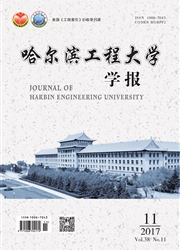

 中文摘要:
中文摘要:
为了改进微操作力提升系统的性能,设计了一种新型的末端操作器,分析了末端操作器的工作原理,提出了适应操作者操作特性的速度和位移增量2种控制策略,并基于dSPACE实验平台对微操作力提升系统进行了实验研究.实验结果表明:速度控制策略和位移增量控制策略均可行,操作者施加较小的操作力,提升系统就能顺应人的操作升降负载,能够满足操作者提升操作的柔顺行要求.
 英文摘要:
英文摘要:
To improve the performance of a micro-operational force intelligent assist device (IAD) based hoisting system, the end-effeetor, the device at the end of the robotic arm, was redesigned to improve interaction with the environment. The working principles of the end-effeetor were analyzed and on that basis a velocity control strategy and a displacement-increment control strategy were proposed. Using the dSPACE simulation platform, micro-operational force hoisting systems were studied. The results showed that both a velocity control strategy and a displacement-increment control strategy are feasible, and when micro-operational force was applied, the hoisting system adapted to human operation, effectively assisting movement of loads up and down. This should meet the compliance requirements of an IAD for operator assisted hoisting of loads.
 同期刊论文项目
同期刊论文项目
 同项目期刊论文
同项目期刊论文
 期刊信息
期刊信息
